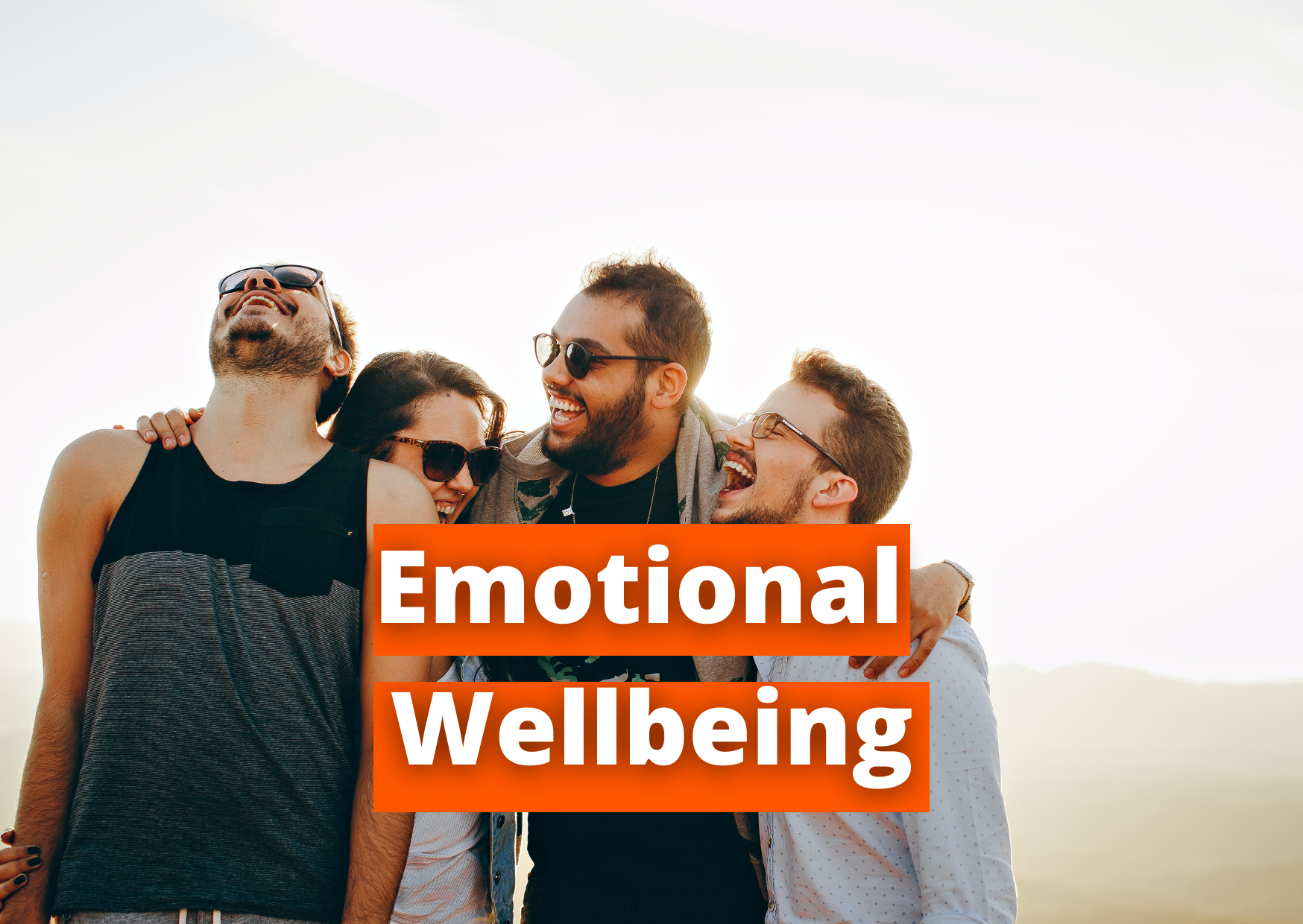Emotional Wellbeing
The term “emotional wellbeing” usually conjures up good images of anticipation, pleasure, compassion, and acceptance.
However, how we deal with negative emotions is perhaps the most important determinant of our emotional wellbeing.
Contents
Why is Emotional Wellbeing Important?
How are Emotional Health and Physical Health Linked?
What Contributes to Good Emotional Wellbeing?
How Can Companies Support Employee Emotional Wellbeing?
5 Strategies for Improving Emotional Wellbeing
What is Emotional Wellbeing?
According to the Mental Health Foundation, emotional wellbeing is the ability of an individual to function in society and meet the demands of everyday life.
People with positive emotional wellbeing can recover quickly from illness, change, or adversity.
Emotional wellbeing enables you to focus on the good while managing any unpleasant emotions or sentiments you may be experiencing.
This might assist you in forging stronger bonds with individuals around you.
Instead of concentrating on difficulties or flaws, everyday emotional wellbeing entails leveraging your strengths.
The more you can control your emotions, the more you’ll be able to enjoy life, deal with stress, and concentrate on key personal goals.
Though the two are sometimes confused, emotional health is an extension of mental health.
While mental health is concerned with the functioning of your brain, emotional health is concerned with our attitude toward life.
It also concerns our capacity to live a healthy lifestyle.
Why is Emotional Wellbeing Important?
We can make better judgments and look at life with hope if we can regulate our feelings, thoughts, and sentiments.
As you become more productive, feel good about yourself, your journey to better emotional health is also one of personal growth.
Moreover, being emotionally balanced allows us to have more rewarding relationships and interactions with the people we care about.
This is an important aspect of emotional intelligence.
One of the most significant benefits of emotional wellbeing is the favourable influence it may have on your physical wellbeing.
How are Emotional Health and Physical Health Linked?
In a condition of wellbeing, everything in your life — emotional, social, spiritual, physical, and intellectual — connects.
30 minutes of moderate physical activity every day, for example, can help your brain function better.
This translates to increased energy, attentiveness, and a more positive view of life.
Since exercise helps to balance your dopamine and serotonin levels, it can help you sleep better and reduce tension and worry.
This can all help you control your moods and emotions more effectively.
Each aspect of your health has the ability to influence others.
Studies have shown that poor emotional wellbeing has a significant influence on physical health.
It can increase the risk of cancer, heart disease, and lung illness.
Considering our bodies and brains are not disconnected, it’s not unexpected that mental illness may have an impact on your physical health.
An upset stomach, for example, can be caused by depression, which can cause headaches, fatigue, and digestive issues.
Insomnia, restlessness, and difficulty focusing are some of the other symptoms.
What Contributes to Good Emotional Wellbeing?
The social, mental, psychological, and spiritual components of people’s lives are all included in socio-emotional health and wellbeing.
This includes developing and maintaining satisfying and healthy relationships, understanding and accepting another’s point of view, mediating interpersonal conflict, feeling capable and whole, showing emotions, managing stress, and having a positive sense of self.
This includes building a healthy sense of identity pertaining to race and ethnicity, gender, sexuality, disabilities, spirituality, and other elements of human disparities.
Our capacity for emotional wellbeing is a crucial component of our social and emotional health.
We may take greater responsibility for our feelings, ideas, and reactions to life’s situations if we have an inside-out world perspective.
We may cause less harm to ourselves and the people around us when we are able to identify our own tendencies and reactions.
How Can Companies Support Employee Emotional Wellbeing?
One way a corporation may help its employees’ emotional wellbeing is to provide a range of wellbeing workshops, webinars and activities.
Employees can learn a range of tools and strategies that could assist them with any emotional challenges they may be facing.
This would provide instant help and services for any mental or physical health issues that could occur at work.
Employees with good physical and mental health are more driven, devoted, productive, adaptive, and absenteeism-resistant.
They are more inclined to stay with a firm for a longer amount of time as a result of this.
5 Strategies for Improving Emotional Wellbeing
Express yourself

Some people enjoy reading to learn about the world or to escape into alternate realities.
Some people like to express their emotions via art, while others prefer to engage in discussion.
Whatever your preferred method of expression, ensure you use it to stay connected and learn more about yourself.
Learn to relax and take breaks

People have many various ways of unwinding from life’s pressures.
When you begin to feel low or stressed, you forget to be kind to yourself, and you avoid doing these things.
Prolonged stress can often cause muscle tension.
This is the body’s technique of protecting itself against pain and injury.
Muscles seize up all together in response to quick onset stress, then relax once the stress has passed.
Therefore, you may get a massage to help reduce stress by reducing your pulse rate.
Massages can also help to relax your muscles and generate endorphins.
Keep active

Physical activity also promotes the release of endorphins, which might help you feel better.
When you’re in a bad mood, you may unconsciously cease doing activities that would help you feel better.
Even if you don’t feel like it at first, making sure you get some physical activity might help you improve your mood quickly.
Additionally, if you are an employer wishing to energise your staff in order to increase motivation and productivity, get in touch to find out about Loving Life’s range of employee wellbeing services.
Try out relaxation techniques
Relaxation practises like mindfulness and meditation can help you slow down and stay in the present moment, which can enhance your emotional wellbeing.
Our brains wander and our thoughts run all too frequently about all the things we might and could be doing better.
We can get perspective by meditating, doing deep breathing exercises, or practising mindfulness.
This is so that stressors don’t dictate our thoughts and behaviours.
Talk to someone
 Having somebody to confide in may be extremely beneficial to one’s emotional wellbeing.
Having somebody to confide in may be extremely beneficial to one’s emotional wellbeing.
If you have someone close to you, such as a close friend or family member, reach out to them if you’re ever going through a hard time.
Expressing your feelings might help you gain insight into what you’re going through as well as provide you with someone to depend on for comfort.
Taking care of your emotional wellbeing is essential for a happy, balanced life. Remember, small steps can lead to big changes.
Express your feelings, take breaks, stay active, and don’t hesitate to seek support when needed.
By prioritising your emotional health, you can better handle life’s challenges and enjoy its joys.
Author
Tyler Lowe – Health & Wellbeing Speaker
BSc Sport & Exercise Rehabilitation


